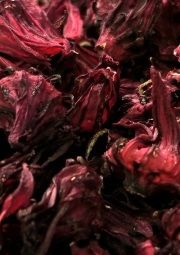The nutritional benefit of purple foods
Children are frequently told to “eat their greens” but one article, titled, “16 Delicious and Nutritious Purple Foods” by Healthline suggests that we may be better encouraging our families to eat their purple fruits and vegetables.
The article lists some of the best purple foods to eat for nutritional benefit, including:
- Blackberries Rich in fibre, vitamin C, folate, magnesium, potassium and manganese. - Aubergine The article admits the purple vegetable may not be as nutrient-dense as some of the other purple foods listed, but it is a good source of antioxidants and manganese, which is important for contributing to normal energy-yielding metabolism, the maintenance of normal bones and protecting cells from oxidative stress. - Purple carrots Purple carrots contain more polyphenol antioxidants than other carrot varieties, including the more common orange variety. - Purple cabbage Purple, also known as red, cabbage is a great source of fibre, provitamin A and vitamin C. - Elderberries High in vitamin C, elderberries are known for their immune system support. - Purple barley Rich in fibre, manganese, iron, magnesium and selenium, purple barley is exceptionally nutrient dense.
The potential anti-inflammatory benefits of curcumin
There has been several papers touting the anti-inflammatory benefits of turmeric and this latest study “Meta-analysis supports curcumin’s anti-inflammatory and metabolic benefits” by NutraIngredients-USA further suggests that it is the curcumin from turmeric that may give the substance is anti-inflammatory properties.
The study states that it may boost levels of adiponectin, a protein hormone, and it is this hormone that is linked to anti-inflammatory effects.
While the study is promising, the article does state that more research is needed to strengthen the association between curcumin and adiponectin levels.

How a roselle tea could benefit our skin
A recent study from Taiwan suggests that drinking brewed roselle (Hibiscus sabdariffa L.) on a daily basis could improve skin hydration.
The study, as reported by NutraIngredients, found that daily consumption of 200ml of brewed roselle was able to increase the water holding capacity of the skin and reduce wrinkles. The research was carried out over a period of five months and involved 60 participants between the ages of 25 and 85 from hospitals and community settings.
It is thought that the reason behind the drink’s hydrating benefits might be the phytochemicals in the roselle flowers.
Share your thoughts
Agree with the findings in this week’s Nutrition News? Share your thoughts with us on Facebook and Twitter.
 Alison is Director and Founder of Metabolics who writes about Metabolics updates, events and natural healthcare. Her experience and passion for natural supplements and healthcare comes from her years of experience as a practising osteopath, having founded Metabolics in her search for high quality, natural products in her own work. Alison has been a qualified and practising Osteopath since 1981 and regularly gives seminars on a range of healthcare subjects to the wider practitioner community helping share her knowledge and experience.
Alison is Director and Founder of Metabolics who writes about Metabolics updates, events and natural healthcare. Her experience and passion for natural supplements and healthcare comes from her years of experience as a practising osteopath, having founded Metabolics in her search for high quality, natural products in her own work. Alison has been a qualified and practising Osteopath since 1981 and regularly gives seminars on a range of healthcare subjects to the wider practitioner community helping share her knowledge and experience.


